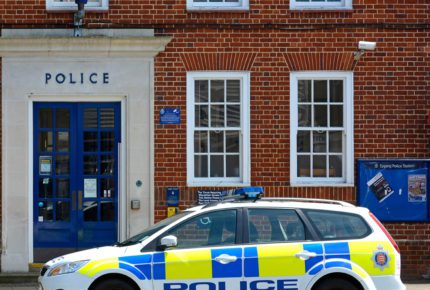

Whilst bail conditions can feel restrictive and frustrating, most would agree that bail is a much better option than being remanded in custody. Whether or not you are granted bail represents an important decision in the prosecution process. Being remanded in custody is a severe restriction on your civil liberties; both the police and the court are duty-bound to consider whether it is necessary to keep you in jail pending your trial, or if less restrictive means are available. Therefore, in many cases, bail will be granted by the police, and later by the court post-charge. However, if you breach your bail conditions you could be at risk of being remanded into custody. If you are between places, or waiting for a permanent home, it isn’t always easy to know which address to give as your bail address. The general rule is that you should give the address that you are actually sleeping at, not an address that for example, your mail gets sent to but that you do not actually stay at.
In what circumstances will you be granted bail?
You can be granted bail by the police prior to or after you have been charged. Post-charge, you can also be granted bail by the court.
Pre-charge bail
There are several different situations where you could be granted pre-charge bail:
- You can be granted bail by the police where there is insufficient evidence to charge you and further investigations are underway. Even if there is still a live investigation ongoing against you, where it is no longer necessary to detain you, the police must release you.
- Another situation where you could be granted bail is where you have been kept in custody for the maximum period but there is still insufficient evidence to charge you. The police cannot detain you beyond the statutory prescribed custody limits without charge. The law on pre-charge bail is set out in Section 41 of PACE, as amended by the Police (Detention and Bail) Act 2011. This explains that you can be detained for 24 hours on the decision of the custody sergeant. If the police wish to detain you for longer, permission must be granted by an officer ranked superintendent or above. You can then be detained for up to 36 hours. Should the police wish to detain you beyond 36 hours, they must apply to the Magistrates’ Court for a warrant under Section 43 of PACE. They can then detain you for a maximum of 72 hours. The time limits are longer in suspected terrorism cases.
- For certain offences, the police must send the case file to the CPS for a charging decision. Often the CPS can take weeks or even months to make their charging decision. Where the CPS’ decision is awaited, you will often be released on bail.
Where you have been released on pre-charge bail, breach of your bail conditions is not a criminal offence. However, the police are allowed to arrest you if you are believed to have breached your bail conditions. This means that it is very important to provide an accurate bail address.
Post-charge bail
After you have been charged, there are two types of bail: police bail and court bail. Police bail applies after you have been charged but before your first appearance at the Magistrates’ Court. You can be bailed to appear at court. Court bail refers to bail granted by the court. Bail applications are usually made to the Magistrates’ Court.
Section 4 of the Bail Act 1976 sets out a general right to bail. This means that the presumption is that you are entitled to bail unless specific exclusions apply. The general right to bail does not apply to those accused of murder, manslaughter, or serious sexual offences. It also does not apply to certain Class A drug users who have failed to undergo mandatory drug testing. The exceptions to the right to bail are complex and vary depending on the offence category.
What is the purpose of bail conditions?
Bail conditions are not supposed to be punitive. The purpose of bail conditions is to address any of the risks that would occur if you were released unconditionally. For example, the bail condition to report to the police station is designed to address the risk of you absconding. In some cases, one of your bail conditions could be that you are prohibited from driving. However, the court would need to be satisfied that this restriction was necessary and proportionate to managing the risk that you would pose if you were allowed to drive.
When you are bailed to an address, it means that one of the conditions of you being released from custody is that you stay at that address. This is to ensure that you do not abscond. If you breach this condition of your bail by staying elsewhere, you could be arrested.
If you wish to change address and you are on police bail, you should notify the police that you wish to change your bail address. If you are on court bail, you must notify your criminal defence solicitor. Usually your solicitor will contact the prosecutor to seek to vary your bail conditions with consent, i.e. without the need for a court hearing. This avoids the cost of making a bail application to court.
Electronic tagging should only be used in circumstances where if you were not electronically tagged, the only other option would be to remand you in custody. The time that you spend subject electronic tagging must be deducted from your sentence if you are convicted.
If you apply to amend bail, the court will consider whether the conditions that have been imposed are necessary, proportionate, and capable of being enforced. It is also possible for the prosecutor to apply to amend your bail conditions, where new information comes to light which was not available when the original bail decision was taken. This could lead to more severe bail conditions being imposed.
Will the police verify your bail address?
If you plan to stay at your home address, the police will usually ask for proof that it is your correct address by asking you to present your driving licence or a utility bill. If you give a friend or family member’s address as your bail address, the police will usually contact them to make sure that they are happy for you to stay there.
If you have been arrested for an indictable offence, Section 32 of PACE determines that the police have the right to enter and search your home. Therefore, it is possible that the police may attend your home for the purpose of conducting a search. Once the relevant searches have taken place, the police are unlikely to attend your house to check on you whilst you are on bail unless you are suspected of breaching your bail conditions or of committing further offences.
How can you challenge your bail conditions?
You can challenge the bail conditions made by the police or by the court by making an application to court subject to Section 47 of PACE. If you wish to challenge your bail conditions, you should discuss this with your criminal defence solicitor. Your solicitor will first discuss whether amendments to your bail can be agreed with the prosecutor. If this is not possible, your solicitor will assist you in making an application to the Magistrates’ Court. It is usually easier to secure a change to your bail conditions if you can show that you have been complying with the current conditions for a period of time. Therefore, a bail application that is made immediately after bail conditions have been set is unlikely to be successful.
Generally, when deciding whether to grant you bail the court will look at your history of offending, your risk of absconding, and the risk of you interfering with witnesses in your case.
The court will also consider the likelihood of you committing further offences whilst on bail. Where you are facing a lengthy prison sentence if convicted, the temptation to abscond will be considered to be higher. Your criminal defence solicitor can help prepare a detailed bail application explaining to the court factors relevant to your personal circumstances which would make you less likely to abscond, such as caring responsibilities. If you wish to make a bail application, discuss this with your criminal defence solicitor.
Where to get further help?
If you need help with your bail conditions, make sure you have instructed a criminal defence solicitor that you can rely upon. You are not obliged to stick with the same firm that represented you at the police station. Make sure that your legal representatives have your best interests at heart! At Stuart Miller Solicitors, you can be assured that you will receive excellent service from our experienced team. Contact us for a no obligation consultation today!